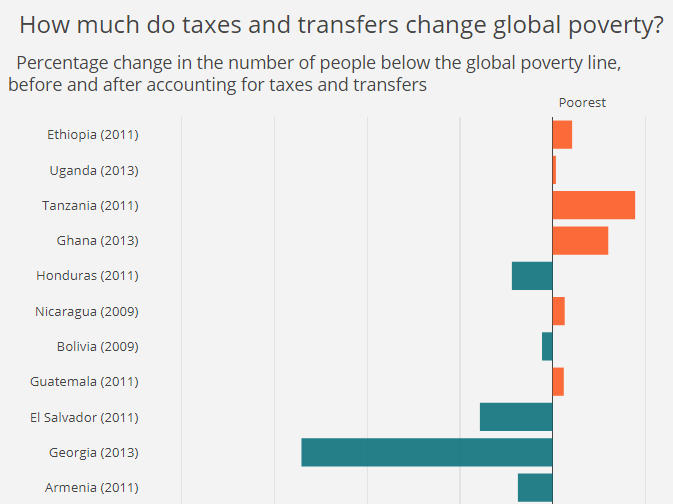Ideas to action: independent research for global prosperity
Poverty
More from the Series
Blog Post
June 05, 2018
Some development fundamentalists think that aid should never be spent directly in the national interest. At the other extreme, some people—apparently including the UK Treasury—believe all development cooperation should be directly win-win. Both these polar opposites are dangerously wrong...
WORKING PAPERS
June 01, 2018
Individuals do escape poverty during periods of overall rise in the poverty rate; they also transit into poverty during periods of overall decline in the poverty rate. In this paper, I explore six sweeps of household surveys of Nigeria (1980–2010) in an attempt to address these concerns. In ad...
Blog Post
May 15, 2018
The world’s poorest people have been getting richer recently. But they remain incredibly poor. The 10 percent of the world’s population still consuming $1.90 or less a day are subsisting on a small fraction of the resources available to people at the US poverty line. So you’d hope ...
WORKING PAPERS
April 30, 2018
The paper critically reviews the arguments for and against both employment guarantees and income guarantees when viewed as rights-based policy instruments for poverty reduction in a developing economy, with special reference to India. Evidence on India’s National Rural Employment Guarantee Act...
WORKING PAPERS
April 27, 2018
Drawing on six sweeps of household surveys of Nigeria that together span 1980–2010 with a pooled sample size of about 97,000 households and data on Nigeria’s age-gender-specific life expectancy from the World Health Organization, this paper shows that about 72 percent to 91 percent of Ni...






